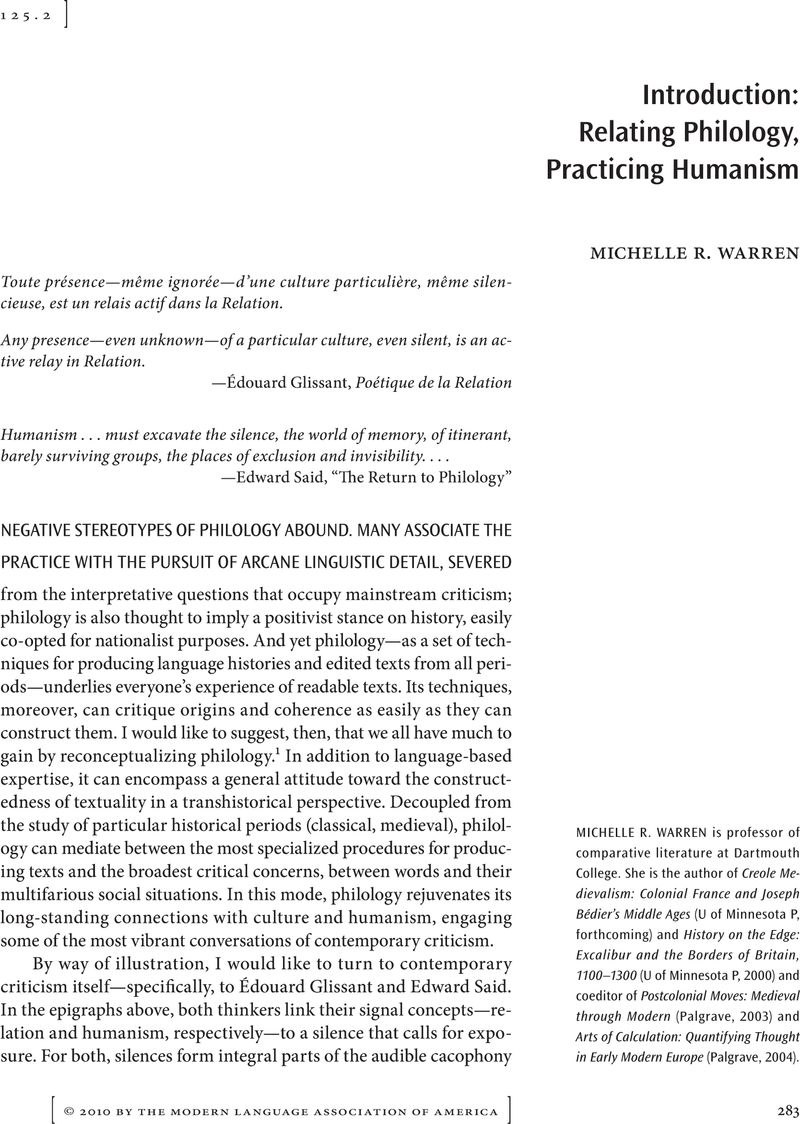Crossref Citations
This article has been cited by the following publications. This list is generated based on data provided by Crossref.
Kimmel, Seth
2013.
Architecture.
Journal of Medieval Iberian Studies,
Vol. 5,
Issue. 2,
p.
134.
Warren, Michelle R
2014.
Shimmering philology.
postmedieval: a journal of medieval cultural studies,
Vol. 5,
Issue. 4,
p.
389.
Warren, Michelle R.
2014.
The Song of Roland: How the Middle Ages Aren’t Old.
Cambridge Journal of Postcolonial Literary Inquiry,
Vol. 1,
Issue. 2,
p.
281.
Lledó-Guillem, Vicente
2018.
The Making of Catalan Linguistic Identity in Medieval and Early Modern Times.
p.
211.
Lledó-Guillem, Vicente
2018.
The Making of Catalan Linguistic Identity in Medieval and Early Modern Times.
p.
109.
Novacich, Sarah Elliott
2018.
Medieval Literature in the Contact Zone.
Exemplaria,
Vol. 30,
Issue. 4,
p.
337.
Bondini, Maria da Glória
2020.
Matérias da memória.
LLEDÓ-GUILLEM, VICENTE
2020.
DEFENDING THE LANGUAGE OF THE PEASANTS IN FIFTEENTH-CENTURY VALENCIA: JAUME GASSULL’SLA BRAMA DELS LLAURADORS.
Catalan Review,
Vol. 34,
Issue. ,
p.
81.
Newman, Jane O.
2020.
The Gospel according to Auerbach.
PMLA/Publications of the Modern Language Association of America,
Vol. 135,
Issue. 3,
p.
455.
Vuković, Tvrtko
2023.
Sablasti filološkog zadatka. S onu stranu povratka filologiji.
Poznańskie Studia Slawistyczne,
p.
213.


